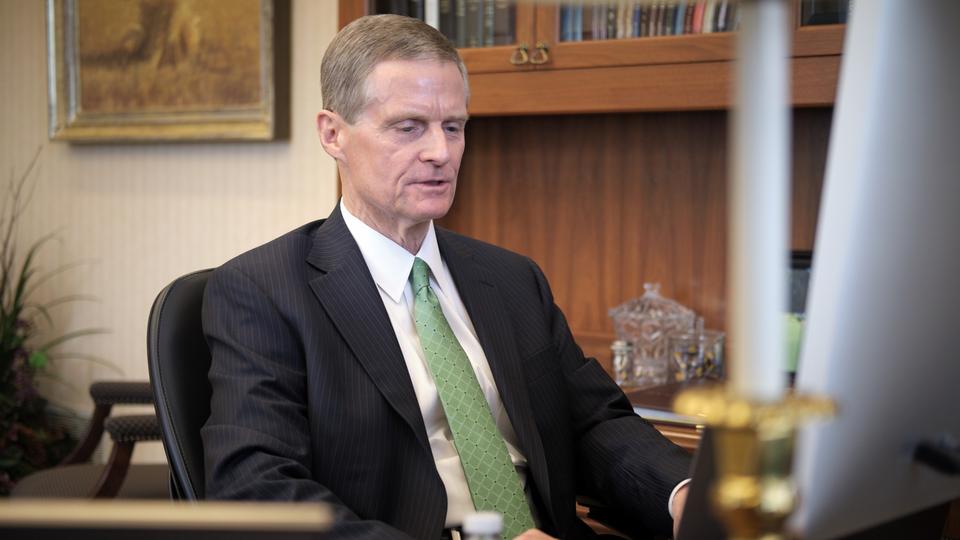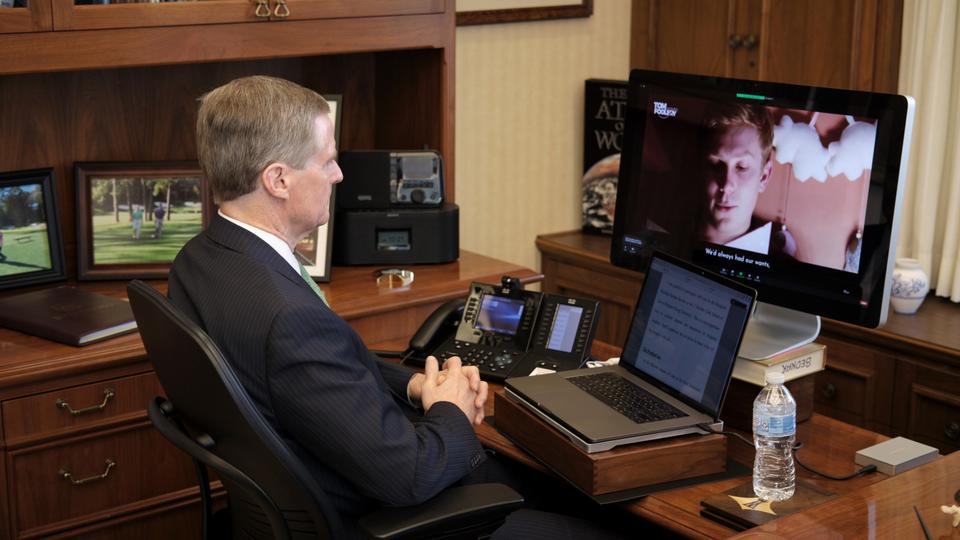Kudos to the people who put together this short video. Take a look.
Author Archives: Geoff B.
Some thoughts on the virus as we head back to church
My ward in Colorado is starting Sacrament meetings on Sunday for the first time since March. I am in the Elder’s Quorum presidency, so I have been involved with planning the return.
Sacrament meeting will look very different. Everybody over two years old must wear a mask. There will be greeters and counters as you walk into the building. We cannot have more than 99 people at Sacrament, which means we will have two Sacrament meetings for our ward every Sunday, and people will only be able to take Sacrament (at least for now) every other Sunday. Many at risk people will continue to take Sacrament at home. Once you get into the chapel, you must maintain social distancing from other families. No hymnals will be available — you must look up the lyrics on-line.
The return of Sacrament meeting will be a huge blessing for our ward, but especially for those who do not have priesthood in the home and may have missed taking the Sacrament regularly the last few months. And I want to make it clear that the strange new world of our Sacrament meetings is mandated by our local county. County officials have make it clear they will be monitoring churches to make sure they abide by these rules, and our stake leaders have done an excellent job adapting to the county guidelines. So, just in case there is any doubt: I support what our church is doing.
The Church is adapting to the societal response. If we want to find culprits for the economic devastation, the suppression of civil liberties and the rampant fear-mongering regarding the virus, the fault is not the Church. The fault lies at the feet of our dishonest media and our many dishonest politicians.
With that in mind, I would like to bring a few facts to the attention of readers. Hopefully with the help of these facts we may, as Elder Bednar recently said, arrive at a situation where “Never again must the fundamental right to worship God be trivialized below the ability to buy gasoline.”
Elder Bednar’s important comments today on religious freedom and COVID-19
Elder Bednar spoke today at during the Religious Freedom Annual Review on the importance of religious freedom. The apostle’s remarks, were streamed live Wednesday morning during the Religious Freedom Annual Review, hosted by the Brigham Young University Law School. This year’s conference is being held online due to the pandemic.
Here are some highlights from the LDS newsroom:
Elder Bednar warned there is a danger in limiting a religious organization’s right to gather. “Gathering, in short, is at the core of faith and religion. Indeed, if the faithful are not gathering, sooner or later they will begin to scatter. And because gathering lies at the very heart of religion, the right to gather lies at the very heart of religious freedom.”
When the pandemic hit, congregations of many faiths around the world canceled worship services and other activities to abide by government restrictions for large group gatherings to slow the spread of the coronavirus.
“I believe it is vital for us to recognize that the sweeping governmental restrictions that were placed on religious gatherings at the outset of the COVID-19 crisis truly were extraordinary,” Elder Bednar explained. “No other event in our lifetime—and perhaps no other event since the founding of this nation—has caused quite this kind of widespread disruption of religious gatherings and worship.”
Four Personal Reflections
Elder Bednar offered four personal reflections on the impacts of the coronavirus pandemic:
- Government power can never be unlimited.
- Religious freedom is paramount among our fundamental rights.
- Religious freedom is fragile.
- In a time of crisis, sensitive tools are necessary to balance demands of religious liberty with the just interests of society.


In North America, Elder Bednar pointed out, jurisdictions deemed services related to alcohol, animals and marijuana as essential, while the services of religious organizations were classified as nonessential, even when those activities could be safely conducted.
The senior Church leader cited examples in one state where Catholic priests were barred from anointing a parishioner with holy oil in the performance of last rites, even if that person did not have COVID-19. In the same state, Latter-day Saints were not allowed to perform baptisms.
“The power of government must have limits,” asserted Elder Bednar.
“This time of restriction and confinement has confirmed for me that no freedom is more important than religious freedom,” said the senior leader of the global faith. “Protecting a person’s physical health from the coronavirus is, of course, important, but so is a person’s spiritual health.”
Elder Bednar continued, “While believers and their religious organizations must be good citizens in a time of crisis, never again can we allow government officials to treat the exercise of religion as simply nonessential. Never again must the fundamental right to worship God be trivialized below the ability to buy gasoline.”
Elder Bednar said the COVID-19 crisis demonstrates the fragility of religious freedom and the need to shore it up.
“In our understandable desire to combat COVID-19, we, too, as a society may have forgotten something about who we are and what is most precious,” he concluded. “Now is the time for us to heed the wake-up call, to remember and to act.”
2020 election prediction from the person who correctly called 2016
In May 2016, I predicted Donald Trump would be the next president. You can read it here. So readers are anxious to know what I think will happen in November 2020.
The answer: Trump will win again. Republicans will keep the Senate, and there is a 50-50 chance of the Republicans winning the House.
This is not necessarily a brave prediction. Anybody following the betting markets knows that Trump is expected to win among the people willing to put money on it.
Yes, yes, I know that Biden is way ahead in many crucial polls. I am predicting that the country will become less enthusiastic about Biden as he emerges from his basement. I am also predicting that the Democrats will suffer from their love for endless lockdowns during the COVID-19 crisis. I predict they will get more blame for the economic downturn than Trump.
But here is the thing about making predictions: sometimes you are wrong. For those who don’t understand my tongue in cheek sense of humor, please note that I was absolutely sure Mitt Romney would win in 2012, and I was very, very wrong on that prediction. Win some, lose some.
The upside of COVID-19: the end of many leftist narratives
As we ponder the fact that hundreds of thousands of people are dying worldwide from COVID-19, there is one bit of good news from this historically pivotal event: many of the most pernicious leftist narratives are being destroyed right in front of our eyes. I always try to see the positive in negative events, and in the long run, there will be positives to take away from this dark and dreary time.
With that in mind, here is a partial list of left-wing narratives that have been completely destroyed in the last few months.
1)The left cares about working people. The United States is approaching 40 million jobs lost during the pandemic, and the vast majority of people who have lost their jobs are working class and middle class people. Most of the managerial class and the professional class (and of course government workers) have been able to keep their jobs. And yet left-wing commentators and politicians want to continue the lockdown indefinitely. They can barely muster any concern for the unemployed during this period – everything is based on the childish claim that if you want people to be employed you somehow care about the stock market more than lives.
